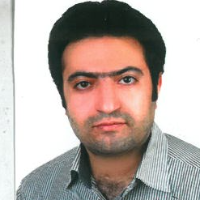A Critical Look at the Recording and Description of A Few Verses from Sanāʹi Ghaznavi’s Hadiqat al-Haqiqa Edited by Yāhaghi and Zarqāni
Accurate and scientific editing of ancient Persian texts is undoubtedly the first and foremost basis for literary research in this native land. Paying attention to outstanding works and masterpieces is of great importance. Sanāʹi Ghaznavi's Hadiqat al-Haqiqa is undoubtedly one of the most influential Persian versified poems in various literary, philosophical, and mystical aspects. This work has so far been repeatedly edited and published.. The edited and printed version of Mohammad Jafar Yāhaghi and Mehdi Zarqāni is the latest and perhaps the most complete representation of such efforts. However, the results of this endeavor are not, as in the preceding cases, free from drawbacks. In this research, with an approach based on critique and with the aim of correcting and eliminating the text shortcomings as much as possible, we assessed and critiqued the recording of some verses from Hadiqat al-Haqiqa. By using side sources and in-text and out-of-text evidence, we showed that the correct forms of phrases have been erroneously marginalized from the text in many cases due to the correctors' inattention to what has been recorded in most of the older manuscripts and disregard for previous research and corrections. This has sometimes led to an incorrect description of each distich.IntroductionIn the field of research on ancient texts, the most important principle is to obtain a refined and citationable form from such works. One of these texts that deserve attention in terms of both the importance of the soul of the work and scientific reputation of its correctors is Hadiqat al-Haqiqa. That is why the correction and description of this valuable book has always been of interest to literary scholars. The latest scientific correction of this book is the result of Mohammad Jafar Yāhaghi and Mehdi Zarqāni’s efforts, which led to its first publication in two volumes by Sokhan Publications in the fall of 1397. The author of its lines has analyzed the recording and description of some verses with a critical approach to the text and has shown that its original and correct aspect has been marginalized in many cases for various reasons and incorrect forms have contrarily entered the text in a way that it has sometimes led to misinterpretations of the verses.Materials & MethodsIn this research, some verses from Hadiqat al-Haqiqa edited by Yāhaghi and Zarqāni were evaluated using library sources. By using authentic sources, as well as the evidence and reasons inside and outside the text, detailed points about the recording and explanation of the verses were provided.Discussion, Results, and ConclusionsThe book entitled Hadiqah al-Haqiqah by Sanāʹi Ghaznavi is one of the most valuable and important works in the history of Persian literature. It has been considered by many scholars in recent years and numerous commentaries and articles have been written about its verses. Nevertheless, the knot of problems in many of its verses has remained unsolved. Undoubtedly, the major factor involving this issue, along with the elements related to the passage of time and antiquity of the language, is the lack of correct edition of many of its verses.The latest critical correction of this book is the result of Yāhaghi and Zarqāni’s efforts. According to the editors’ report in the preface of the book, 6 manuscripts have been used by them to correct Hadiqah al-Haqiqah. Meanwhile, the manuscript in the John Rylands Library of Manchester dated Shawwal 681 AH with an abbreviation of M, which is apparently the oldest complete manuscript and historiography of Hadiqah, is the manuscript utilized by editors. Editors of the text have tried to get the most correct and less erroneous text from Hadiqah by using old and authentic manuscripts. Nonetheless, a careful study of the verses shows that incorrect recordings have entered their corrected text for various reasons in many cases. According to the evidence, the main factors for the editors' mistakes can be summarized as follows: not paying attention to recording the most complete or oldest manuscripts, neglecting the results of previous researches, not considering the recorded phrases in the previous valid editions, making some inappropriate deductive edits, misreading verses, and ignoring some important text-editing rules. The results of a recent study have also clearly shown the extent to which ignoring the vertical connection of verses in the context, especially in the rhetorical and mystical poetic systems based on narration and anecdote, can deviate a text editor from the right path and cause errors in selecting the correct recording.
Edition , Sanāʹi , Hadiqat al- Haqiqa , Yāhaghi , Zarqāni
-
(Short Article): Investigation of Two Distortions (Ashtad and Banat) in Khaqani’s Divan
Amir Soltan Mohammadi *,
Boostan Adab, -
Examining the Recording and Reading of an Arabic Word in A Verse of Hadiqat al-Haqiqa and Its Semantic Analysis
Seyed *
Textual Criticism of Persian Literature,



